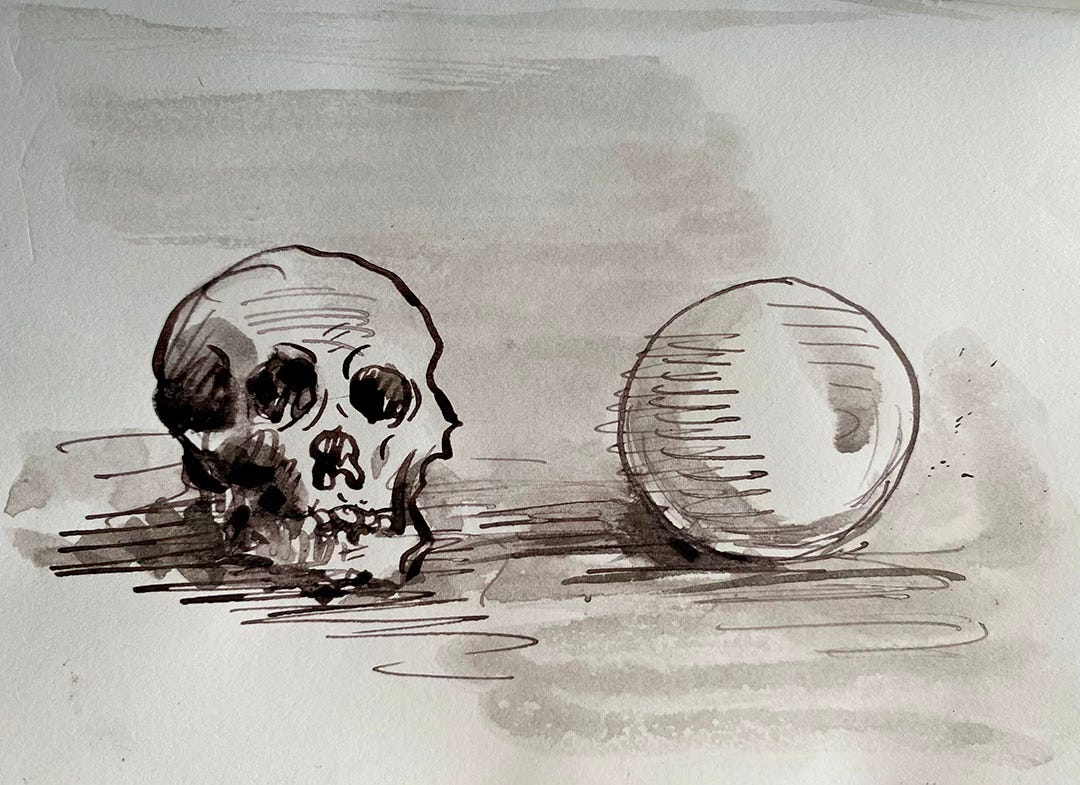The general idea
I’m a literature professor at Pomona College. I have been at this job since 2005. For three miserable semesters in 2018-2019, I chaired the English department.
I’m writing a book about my experiences working at Pomona. Drafts from the manuscript will appear in this newsletter approximately once a week.
I want to give an accurate depiction of the working environment at my school, and to find the humor in it. People don’t seem to know what it’s like to work in a place like this. Strange to say, even people who work in places like this don’t know.
What does “places like this” mean? For a start, imagine a workplace where some of the workers are afraid that their colleagues might be white supremacists, and some of the workers are afraid that their colleagues might be on the verge of calling them white supremacists. (There is usually some overlap between the two groups, and, in most workplaces of this sort, no white supremacists at all.)
There are a lot of places like the Pomona English department in the U.S. They are places of intolerance, mistrust, and self-censorship. People who work in these places do not say what they think. Inevitably, in this working environment, they forget how to think for themselves.
Faculty in the Pomona English department are having the same conflicts about ideas that one would expect to find among the literature faculty at any small liberal arts college in the U.S. What’s different about my department is the money. My department has an enormous amount of money in gifts from donors but no real system of oversight for allocating money and keeping track of spending. As a result, the department’s money presents remarkable opportunities for misuse. The interaction between thought policing, self-censorship, and an ethos of entitlement to seemingly unlimited resources has created a distinctive feverish atmosphere. “Freaky shit crosses my desk every day,” I once wrote in an email.
As a courtesy, I’m not going to use the real names of my colleagues. I am going to use their own words: where possible, I will let my colleagues speak for themselves by reproducing selections from their voluminous emails. If my colleagues choose to respond by writing their own accounts of their experiences working in the English department, their contributions would be very welcome.
Despite my wish to respect people’s privacy, the nature of the question that concerns me -- what is it like to work in a place like this? -- requires treatment of the character of each member of the department. It can’t be helped. When writing about my colleagues, I will sometimes record my opinion of their conduct, which will not always be flattering. If it’s any consolation, I think most of them reacted to their circumstances just as most people would react.
Why do I have their emails? In 2019-2020, two of my colleagues accused me of race-based and sex/gender-based discrimination, harassment, and retaliation. After a long investigation, the college determined that there was no discrimination or harassment, but found three instances of what it called retaliation against one of the complainants, and sanctioned me accordingly. The sanctions were mild, but I thought they were insulting; I petitioned for a writ of mandate in the California Superior Court. On September 6, 2022, after another long legal process, the court granted my petition. The court found that the college did not have evidence of retaliation, even under a weak “substantial evidence” standard of review, and ordered the college to set aside the findings and sanctions in my case. On April 13, 2022, my attorneys filed the complete administrative record of the investigation as an exhibit so that the emails and everything else in the record would be available for public view. I am grateful to my attorneys, Mark Hathaway and Jenna Parker, for their excellent work; and to Zach Greenberg, a lawyer at the Foundation for Individual Rights and Expression, who helped me find legal representation.
I make no promises as to frequency of posting or as to the longevity of this newsletter. I will keep posting as long as it’s useful to me, and I’ll stop when I have a better sense of the shape of the book I’m trying to write.
The title “Weird at My School” is taken from a song by The Pixies. “Weird” because something went wrong at my school on a human level, and “weird” because I’m a little different from other professors at my school. Sometimes you need a weirdo to tell you that things have gotten weird. Your normal friends, neighbors, and coworkers won’t tell you.
And “weird” because school shouldn’t be like other workplaces. An English department should be able to tolerate people with strange opinions. People who say surprising things. People who don’t know how to behave. Schools need the eccentricity of professors as well as their expertise.
Being a literature professor is the best job in the world. Because of the great literature we study. Because of the ornery people it attracts. I still love literature, and for my colleagues I feel a mixture of affection and contempt that is unlike anything I have felt before.
Maybe there is a word for it.


